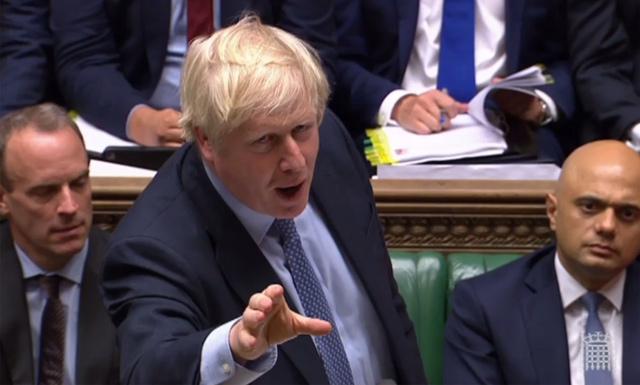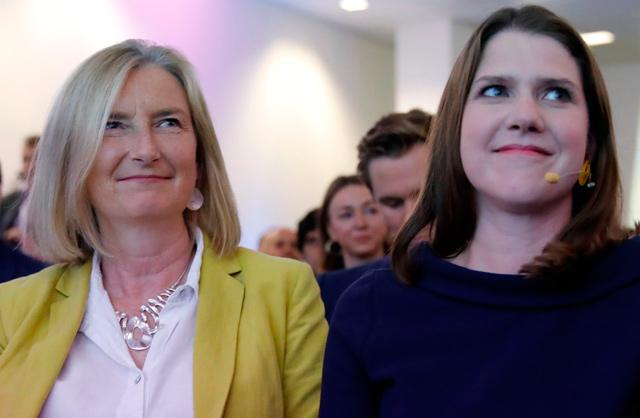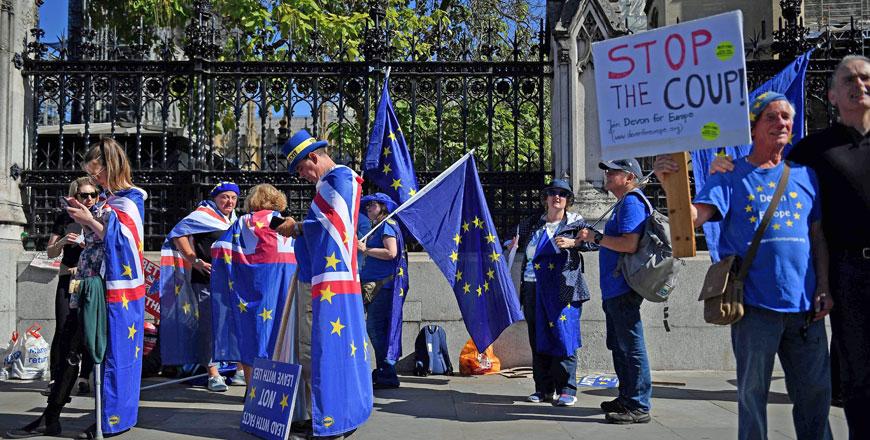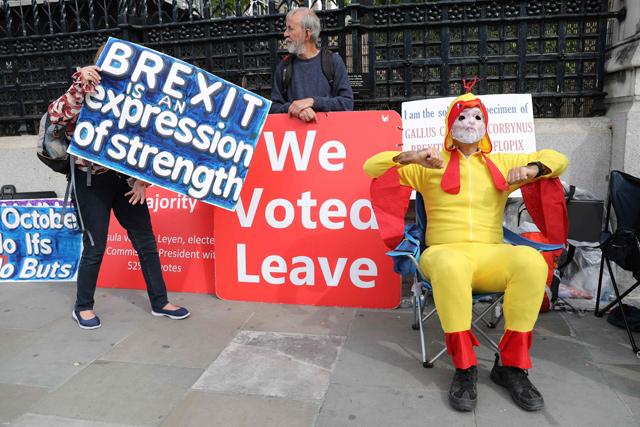You are here
UK’s Johnson faces new Brexit battle after stinging defeat
By AFP - Sep 04,2019 - Last updated at Sep 04,2019

A video grab from footage broadcast by the UK Parliament's Parliamentary Recording Unit shows Britain's Prime Minister Boris Johnson speaking during his first Prime Ministers Questions session in the House of Commons in London on Wednesday (AFP photo)
LONDON — Prime Minister Boris Johnson headed into a fresh Brexit showdown in parliament on Wednesday after being dealt a stinging defeat over his promise to get Britain out of the EU at any cost next month.
The Conservative leader said he wanted an early general election on October 15 if lawmakers vote against him again on Wednesday and force him to seek a three-month Brexit extension from Brussels with a new law.
"I will never allow that," Johnson said, calling the draft law a "surrender bill".
Johnson argues that his threat to take Britain out of the EU with or without a divorce deal on October 31 will eventually force the bloc's 27 other leaders to agree better terms.
His critics counter that Johnson is playing with fire because of the economic damage such a breakup could cause after almost half a century of close ties with Britain's closest neighbours.
The European Commission also on Wednesday said the risk of a no-deal Brexit had increased, warning that it saw no alternative to the current withdrawal deal.
'Johnson loses control'
Johnson suffered a defeat in parliament on Tuesday when he lost his wafer thin majority and rebel Conservatives joined opposition MPs in voting against a no-deal departure.
"Humiliation for Johnson as Tory rebels turn against him," read the front page of the left-wing Guardian newspaper, while The Independent wrote: "Johnson loses control".
But the strongly eurosceptic Daily Express accused MPs of voting "to betray Brexit" and called Tuesday's vote "another shameful day in our so-called democracy".
Johnson got some respite on Wednesday when a court in Scotland ruled that his decision to suspend parliament for over a month starting next week was lawful.
The 75 parliamentarians behind the legal challenge accused Johnson of curbing opposition attempts to block his Brexit strategy and bring down his government.
A similar case will be heard in London on Thursday.
Yet, Johnson's six-week-old government now stands in complete disarray.
It lost its working majority in parliament on Tuesday after one of its MPs switched to the anti-Brexit Liberal Democrats.
It then expelled 21 MPs from the Conservative Party for voting against the government a few hours later.
The Conservative rebels supported an opposition motion temporarily allowing parliament to decide what legislation is put up for a vote — a power traditionally held by the government.
Johnson now enters what promises to be one of the more consequential days of the entire three-year Brexit saga.
Johnson's opponents hope to pass legislation forcing him to seek a Brexit extension until January 31 if no new deal emerges from an October 17-18 EU summit.
MPs would like to vote through the Brexit delay bill in all three required readings by Wednesday evening. It would then move on to the upper house of lords for final approval.
Johnson argued on Tuesday that the proposed legislation would only cause "more dither, more delay and more confusion".
The government has pencilled in an election for October 15 should Johnson lose.
This raises the prospect of a brand new government — one that might like to see Brexit watered down or even cancelled — taking over less than three weeks before the exit deadline.
"I don't want an election but if MPs vote tomorrow to stop the negotiations and to compel another pointless delay of Brexit, potentially for years, then that will be the only way to resolve this," Johnson said on Tuesday.
'Nobody believes him'
A parliamentary majority of two-thirds is required to hold an early general election.
This means that the government would need the support of the main opposition Labour Party.
But Labour fears that Johnson might go back on his word and reschedule the polls until after the October 31 deadline to make sure that Britain leaves the bloc — deal or no deal.
"When he says we are going to have an election on October 15, nobody believes him because the levels of trust in Boris Johnson are very, very low," Labour's Brexit spokesman Keir Starmer told ITV.
"So we're not going to be voting with Johnson today. We want a general election, but we're not dancing to his tune."
The other Labour concern is that an early election could work in Johnson's favour because it comes with his party back on top of the polls as a result of its hardline stance.
"We have to wait and see whether or not her can try to find other ways to hold an election," said John Curtice, professor of politics at the University of Strathclyde.
"The obvious strategy for the opposition is to allow the government to stew" without allowing an election, he said.
Related Articles
LONDON — Jeremy Corbyn urged anti-Boris Johnson MPs to make him Britain's caretaker prime minister to avoid a no-deal Brexit — but his propo
LONDON — Prime Minister Boris Johnson said Thursday Britain will be ready for a no-deal Brexit on October 31 despite his own government's as
BRUSSELS — Whether or not the British parliament legislates to block a no-deal Brexit, a reluctant Boris Johnson would still have to make an














